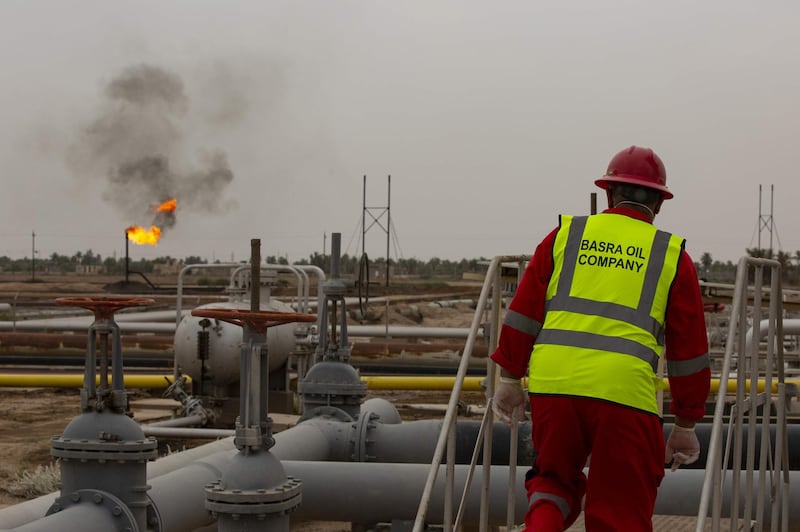Iraq's Cabinet has approved a bid by French energy company TotalEnergies to develop the country's Ratawi natural gasfield.
The company plans to capture and process around 600 million cubic feet per day of gas, the state-run Iraqi News Agency said.
"There is a preliminary agreement with the French company Total to invest gas in the Ratawi fields in two phases. Each phase will achieve 300 million cubic feet per day, in addition to referring the Mansouriya field to a Chinese company," Hamid Younis, undersecretary for gas affairs, told the news agency.
Iraq, Opec's second-largest producer, is looking to maximise the production of gas to meet domestic demand for power.
The country has been plagued by power cuts due to poor utility infrastructure and is now prioritising investment in gas and advancing projects to reduce flaring.
It plans to eliminate gas flaring by 2022. The World Bank estimates about 16 billion cubic metres of gas from Iraqi fields were flared in 2015, costing the economy billions in lost revenue.
A 2018 study by Siemens found that Iraq could save about $5.2 billion over the next four years by reducing gas flared from its fields, in addition to other power generation efficiency efforts.
The country imports gas from neighbouring Iran to make up for the shortfall in power generation.
"Iraq invests more than 50 per cent of the gas, and the largest part of it is associated with oilfields and its production is linked to oil, meaning that the greater the oil production, the greater the quantities of gas," said Mr Younis.
The country plans to raise its overall gas production to 4,000 million cubic feet per day, he said.
The French company, which was previously known as Total, will also build a 1-gigawatt solar power plant and begin work on enhancing production from southern oilfields through the injection of seawater.
In June, Abu Dhabi's Masdar signed an agreement to develop a 2-gigawatt solar photovoltaic plant in Iraq. The project is one of the largest renewable solar PV projects in the Middle East and falls within the vision of Iraq’s 2021-2030 sustainable transition plan.
Separately, Iraq's State Organisation for Marketing of Oil, better known as Somo, made $33bn in revenue in the first half of the year, at a rate of about $5.5bn a month, said Somo director general for oil and gas affairs Ali Faeq.
The Iraqi state earned revenue from the sales of Basra light, medium and heavy oil, as well as crude exported through the Turkish port of Ceyhan.
Somo has also set new standards for Iraqi crude purchases. Buyers must own a refinery or a number of refineries, according to Mr Faeq. He also dismissed concerns of potential competition from the return of Iranian crude should Tehran finalise a nuclear deal with the US.
"We also expect [competition] from the return of some oils that were outside the main official market, such as Iranian crude oil, but we still rank first in our exports to the second-largest market in Asia, which is the Indian market," said Mr Faeq.
India will overtake the EU as the world's third-largest energy consumer by 2030, according to the International Energy Agency. The country is the world's third-largest consumer of oil.







